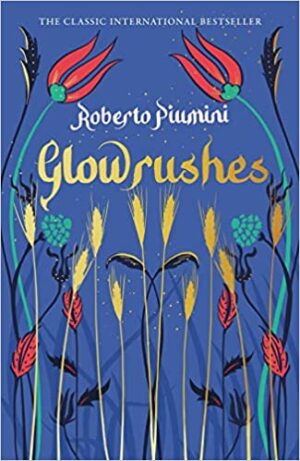Bookstoker Young Readers

Glowrushes
A profound and beautiful celebration of art and storytelling

Needle
The hardest word





An amusing journey into the world of Greek gods and semi-gods has been the highlight of my holiday reading this Christmas. Stone Blind by Natalie Hayes is frivolous fun and a welcome distraction from family gatherings and dishwasher emptying. Hayes, a respected classicist whose mission it is to make Greek myths accessible and entertaining, takes a closer look at the infamous snake-headed Medusa and her lethal stare. Was she really as bad as her reputation? Why did her stare turn people into stone? And how did she end up with snakes as hair anyway?

Capturing the blend of magic and melancholy curiously specific to English seaside towns, Little Boxes by Cecilia Knapp takes us to a Brighton the local tourist board never reveals. During the course of a stifling and turbulent summer, we follow four twenty-something friends as their lives buckle after the death of an elderly man, beloved to them all. An evocation of council estate life in all its colours and ‘ordinary’ young people on the cusp of great change, this debut novel of secrets and survival is an engrossing read.

Pottering about in her nicely linoleumed kitchen one day, Dorothy Caliban is startled to be confronted by a green sea-monster named Larry. Half-man, half-frog, he is an escapee from a nearby research institute, on the run and wanted for murder. He is also curiously attractive, and a welcome diversion for the sad and fragile housewife. Billed as an amphibious cult classic, Mrs Caliban by Rachel Ingalls is a clever and captivating read. Seemingly the decidedly uncommon tale of an inter-species love affair, but actually a delicious skewering of the American patriarchy.
Here we go again! Christmas 2022 is nearly here. In a year when we all have had to tighten our pursestrings, I can’t think of a better present than a book. It’s relatively cheap, give hours and hours of pleasure (sometimes even years), can be shared and is plastic-free – what more can you ask for? 2022 has been a year of new discoveries for us. Most of the books on our list are by authors we hadn’t heard of before or debutants. We have also dug in the pile of classics – some of which we had read before and wanted to re-experience, others that were new to us. Neither have disappointed. We also have a range of children’s books suitable for different age groups and tastes and there’s loads more in our Young Readers section. So here it is, the list of Bookstoker’s best reads this year. Wishing you all a happy holiday season!

This Blinding Absence of Light by Tahar Ben Jelloun is a remarkable, deeply unsettling novel, based on a true story, which has reminded me of the incredible strength humans find in order to survive the darkest of situations. The author Tahar Ben Jelloun traces the experiences of political prisoner Salim, who in 1971 took part in a failed coup to oust King Hassan ll of Morocco. With sixty others, at the whim of the king, Salim was incarcerated in a secret prison complex deep in the Moroccan desert. He was to remain in this hellhole, known as Tazmamart, for nearly twenty years.

The artist Marina Abramovic’s endorsement of Life for Sale by Yukio Mishima piqued my curiosity and, sure enough, this book really is something else. A fast-moving, surreal noir novel originally published in 1968, Life for Sale is about a man who offers his life up for sale. What he expects to be a carefree, albeit lethal, experiment, turns out to be a whole lot more complicated involving gangsters, vampires, hallucinogenic beetle powder and poisoned carrots. Darkly comic and totally twisted, this book will appeal to all fans of surreal fiction and Japanese literature.

Revisiting novels can be a tortuous affair, sometimes bringing the painful realisation that we’ve outgrown favourite books and writers. Happily for me, The Folded Leaf by William Maxwell has provoked the opposite response. Maxwell’s nuanced and tender tale of male friendship remains a quiet triumph. Set in 1920’s Illinois, it charts the adolescence of pals Lymie Peters and Spud Latham, whose alliance hinges on Spud providing protection and social acceptance in exchange for Lymie’s devotion. In an era before male platonic love was considered questionable, their intense bond is fatally tested instead by misunderstandings, boyhood trauma, and the scarring silence of things left unsaid.





There’s nothing like a pandemic to give you a taste of loneliness, but as The Lonely City by Olivia Laing (written long before the Coronavirus) shows us, incredible art can come out of a solitary existence. Laing takes us on an absorbing journey of New York City through the eyes of artists who lived lonely lives – sometimes by choice, most often not. She investigates the lives of artists like Edward Hopper, Henry Darger, David Wojnarowicz even Andy Warhol, whose art ‘is surprisingly eloquent on isolation’ despite his famously social lifestyle. Highly recommended.